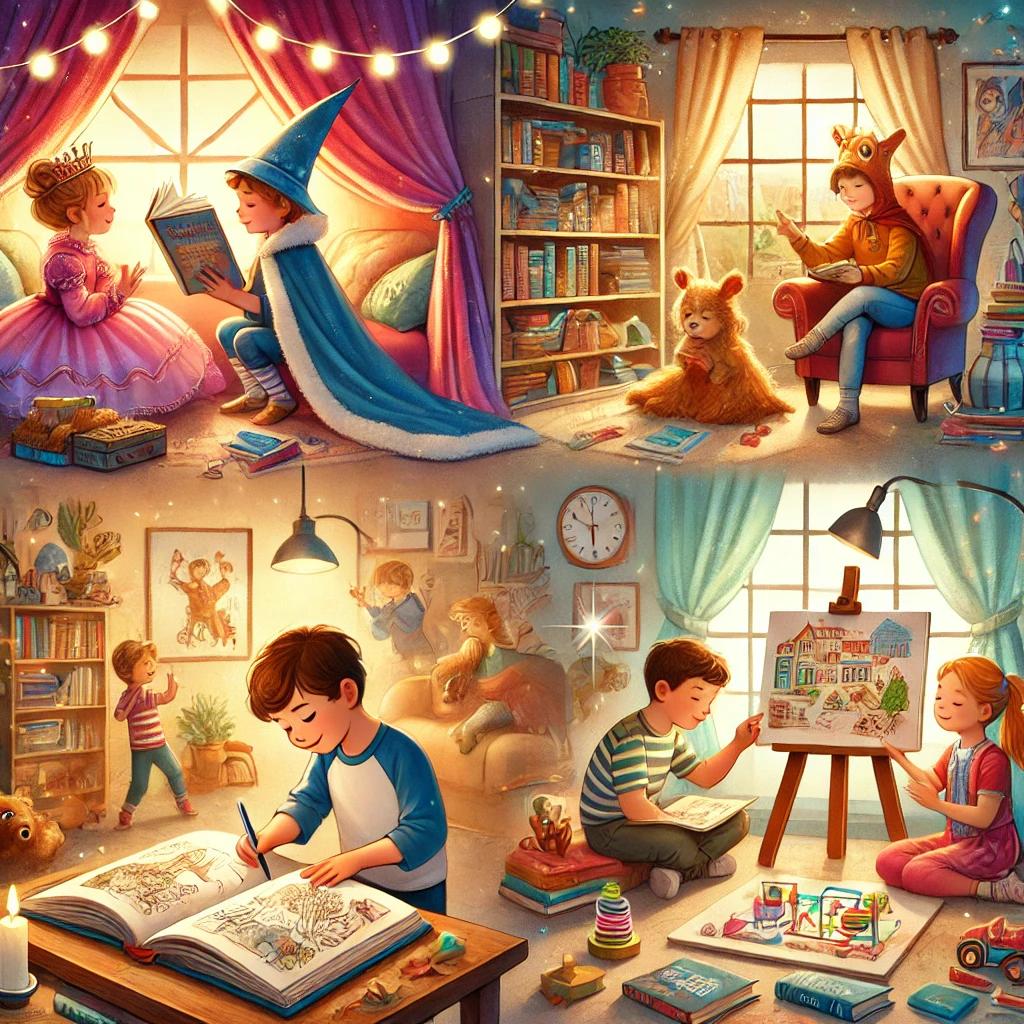Introduction In today's fast-paced digital age, encouraging children to engage in creative and educational activities is more important than ever. Stories and educational books provide an excellent foundation for young minds to explore new worlds, develop critical thinking skills, and strengthen their imagination. By integrating these tools into daily routines, parents and educators can foster a lifelong love of learning and creativity in children.
The Power of Stories in Child Development Stories have always been a fundamental part of human culture, and they play a crucial role in a child's growth and development. Here’s how:
- Enhancing Imagination: Reading or listening to stories encourages children to visualize characters, settings, and scenarios, which boosts their creativity.
- Building Language Skills: Exposure to rich vocabulary in stories helps improve a child’s language and communication abilities.
- Developing Empathy: Stories introduce children to diverse characters and situations, teaching them empathy and understanding.
- Encouraging Problem-Solving: Many stories involve challenges or conflicts, prompting children to think about solutions.
Activities Inspired by Stories Stories can spark engaging and meaningful activities for children. Here are a few ideas:
- Storytelling Sessions: Encourage children to create their own stories based on characters they love.
- Art Projects: Ask them to draw or paint their favorite scenes or characters from a story.
- Role-Playing Games: Turn storytime into playtime by acting out parts of the story together.
- Creative Writing: Let older children write alternative endings or sequels to stories.
Educational Books: A Gateway to Knowledge Educational books provide structured learning opportunities while keeping children entertained. These books can cover a range of topics, from science and history to art and culture, and offer several benefits:
- Fostering Curiosity: Educational books introduce children to new concepts and ideas.
- Improving Focus: Reading encourages concentration and the ability to follow complex ideas.
- Boosting Self-Confidence: Completing educational activities or learning new facts can give children a sense of accomplishment.
Interactive Educational Book Activities Pairing books with activities enhances the learning experience. Consider the following:
- Hands-On Experiments: Use science books to guide simple, safe experiments at home.
- Thematic Crafts: Combine craft projects with topics from the book, such as building a model solar system.
- Learning Journals: Encourage children to keep a journal of interesting facts they learn.
- Book Clubs: Organize small group discussions about educational books to build social and analytical skills.
Balancing Screen Time and Books While technology has its place, balancing screen time with traditional books is essential for healthy development. Here are some tips:
- Create a Reading Nook: Design a cozy and inviting space for reading.
- Set Screen-Free Hours: Dedicate certain times of the day for reading and non-digital activities.
- Mix Digital and Print: Use interactive e-books alongside physical books to keep children engaged.
Conclusion Stories and educational books are invaluable tools for nurturing a child’s creativity, knowledge, and emotional intelligence. By integrating these resources into daily activities, parents and educators can help children develop a deeper appreciation for learning and self-expression. Whether it’s through crafting adventures inspired by tales or conducting experiments based on educational books, the possibilities are endless. Let’s unlock the boundless potential of young minds through the magic of stories and the wisdom of books.


Comments ()